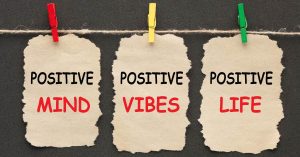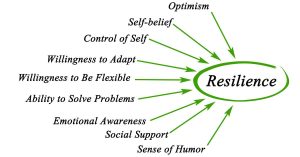Confidence really is everything
“Confidence is a preference…” sang immortal Brit poppers Blur (albeit in relation to the habitual voyeur) back in the mid-’90s, but it’s actually much more than that. Rather than being a preference, it is absolutely crucial to success. In fact, it is and changes everything.
Almost 30 years on from those lyrics, we are far more educated on the positive – and negative – effects of confidence and how creating it can transform your productivity at work and your life.
We are much more clued up on creating and instilling these most vital traits. Probably not surprising to anyone, but a recent Indeed survey found that:
- 99% of those surveyed said confidence was important for a successful jobs search.
- 98% of workers say they perform better when they feel confident.
- 94% of workers say they are happier when they feel confident at work.
Source; Indeed.com

The importance of human interaction
With the impact of such ‘events’ as the Pandemic and the subsequent move to home – and often solus – working, we are facing a communications and confidence crisis. Whilst Zoom, Teams, Google and the plethora of digital platforms available to us enabled us to stay safe whilst continuing to work, the lack of actual human interaction has had a well-documented impact on many’s mental health – and confidence.
Social media has brought with it a vast range of benefits, from enabling us to interact and stay in touch – and connect – with a far wider circle of people, more regularly, to finding out about events, places, products etc. etc. etc. it is gradually eroding the art of face-to-face communication and with it, confidence. The type of confidence that only comes from seeing the whites of the eyes, the handshake (or fist – or elbow – bump).

Whatever your preferred form of greeting, if you don’t physically SEE people, your confidence will be negatively affected.
Human beings were created as sociable ‘animals’ to group, to meet, to socialise and whilst times have inevitably changed, people are people, and we still need this very primaeval activity to get what we need to survive and prosper.
Just think about it. The difference between meeting – for example – your loved ones on a virtual call and in person is a COMPLETELY different all-round experience. OK, you don’t necessarily hug your workmates, but you get the gist.
How confident are British people in themselves?
It’s not like we – as Britons – are famous for our confidence in the first place. That stiff upper lip we are so renowned for comes with an inherent ability to keep schtum, exhibit absolute humility and not show any form of weakness (or fallibility – which is one of the ways we grow). Heaven forbid we blow our own trumpet!! Ironically one of the best ways to build the confidence necessary to succeed!
As a nation, we are famous for being understated, modest and showing all those ‘lovely’ attributes that keep us popular but (arguably) don’t necessarily make us successful.

At this point, I always open the can of worms that is the good old US of A. Although it’s a much, much bigger debate for another time, this is a nation that seems to exude confidence and belief (particularly their children!), often to seemingly impossible (and some might suggest insincere) levels, I grant you, but look at what a nation of entrepreneurial – and no doubt confident – ‘pilgrims’ who left their homelands with absolutely no assurance of success – of life! – has been created in just 250 years. Obviously, I am referring to the good stuff, not the bad here.
What are the negative impacts of social media?
The negative impacts of social media have been documented far and wide and far better elsewhere than I can do justice to here. Cyberbullying, FOMO, Likes-ability… and the like, and indeed all of those issues associated with anonymous posting, popularity and the conveyed perception of a ‘perfect’ life, all do their own damage to self-esteem, self-worth and confidence by generating peer pressure feelings of inadequacy, expectation and underachievement etc. but by gradually erasing the very art of face to face communication we are creating a world where – ironically – connection is being lost.

Poor self-worth also brings with it a whole host of other potential issues; the need to smarten up and look our best (at least from the waist down!) was somewhat less of a requirement during lockdowns/working from home as the world generally evolved around a laptop, but has that attitude continued.
Lack of confidence in the workplace
‘Power’ dressing/smartening up often goes hand-in-hand with how you feel about yourself, and how you feel about yourself goes hand-in-hand with how you perform, what tasks you think you can handle/adapt to and ultimately, how productive you are.
And the workplace will be hit as hard as anywhere. A lack of confidence in the workplace means that decisions don’t get handled with assertiveness and conviction; they may be delayed or not even get made. Verification and validation are sought more regularly, which drains management time, and the whole business pyramid starts to creak.

Ultimately less confidence in the workplace means lower success rates, less productivity and slower growth. In today’s climate, companies need flexible, competent staff who can adapt to ever-changing circumstances, markets and customer needs; can multi-task. If a member (or members) of the team lacks confidence and panics every time they are given a new task, stress levels will rise, and the performance of both the individual – and the team – will suffer.
How we can rebuild confidence in the workplace
So how can we rebuild this confidence and return all those positive attributes to the workplace and success to the economy? By working with teams and individuals on a one-to-one basis to assess and develop their confidence levels in order to work out what is holding them back.
Finding out what fears, beliefs and obstacles are preventing them from being a highly valued leader/member of the team. By doing this, the productivity levels of everyone can be raised, and the performance of the company – YOUR COMPANY – can be elevated, often spectacularly. There are many people who believe that confidence exists or doesn’t. Like a work ethic, you are either born with these traits or not. And if you’re not born with it, the only thing that will help would be medication/alcohol! ANYTHING can be taught – just watch Strictly Come Dancing!

There are a whole host of skills that can be taught, ranging from creating a positive attitude, one where almost anything is possible and where the plus points are taken from every scenario, to developing self-worth based on previous successes and (perhaps) latent, characteristics, to establishing resilience to finding a way forward when things perhaps don’t go to plan.

We, as a race, don’t generally focus on our existing attributes, successes, or problems that we have successfully overcome. Without doing so, we are missing out on a massive back catalogue of successes, a repertoire of experiences that brilliantly prepares us for future challenges. One that gives us an excellent platform for creating the confidence and belief that can help us not only develop as human beings, which will help us navigate life and make it whatever success we want, but subsequently one which will, in turn, help our employers, businesses and the general economy to grow.


